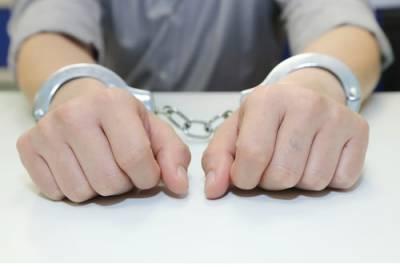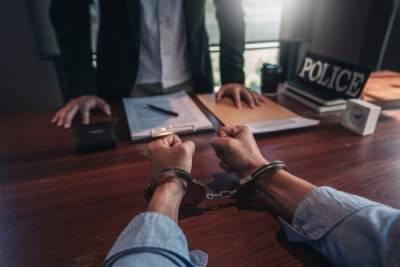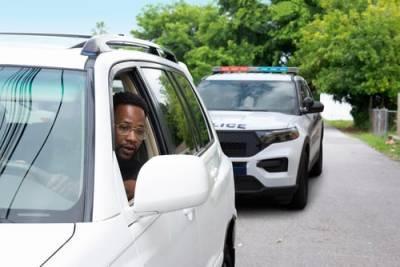Recent Blog Posts
How Has the COVID-19 Pandemic Affected Jury Verdicts?
 COVID-19 has affected the lives of everyone in the United States in a variety of ways. People have been forced to make adjustments in multiple areas of their lives, and many people and organizations are working to return to normalcy while dealing with ongoing health concerns. These issues have also affected the court system, and courts were closed for a significant amount of time in 2020 and 2021 to protect people’s safety. While in-person trials have resumed, ongoing issues related to the pandemic have affected court proceedings and jury verdicts. Those who are involved in criminal trials or civil litigation (including personal injury cases) can make sure these issues are addressed correctly by working with an experienced attorney.
COVID-19 has affected the lives of everyone in the United States in a variety of ways. People have been forced to make adjustments in multiple areas of their lives, and many people and organizations are working to return to normalcy while dealing with ongoing health concerns. These issues have also affected the court system, and courts were closed for a significant amount of time in 2020 and 2021 to protect people’s safety. While in-person trials have resumed, ongoing issues related to the pandemic have affected court proceedings and jury verdicts. Those who are involved in criminal trials or civil litigation (including personal injury cases) can make sure these issues are addressed correctly by working with an experienced attorney.
Changes in Jury Makeup and Voting
The state of Connecticut has resumed jury trials as of June 1, 2021. To ensure that all participants in a trial, including jurors, judges, plaintiffs, defendants, witnesses, attorneys, and court officials, will be safe, multiple protective measures have been implemented. Personal protective equipment (PPE) will be provided to everyone who needs it. Courts will also provide face shields for witnesses, ensuring that jurors and attorneys will be able to observe their facial expressions as they provide testimony.
How Does Connecticut’s New Clean Slate Law Affect Criminal Convictions?
 When a person is convicted of criminal charges, they will face certain penalties. Depending on the nature of the offense, the person’s previous criminal record, and other factors, they may be sentenced to time in prison, required to pay fines, or face certain restrictions during a period of probation. However, there are a variety of other collateral consequences that can affect those who have been convicted of crimes. A criminal record can make it difficult or impossible for a person to find employment, housing, or education. To address this issue, the state of Connecticut recently passed a “clean slate” law that will allow some convicts’ records to be cleared once they have completed their sentences.
When a person is convicted of criminal charges, they will face certain penalties. Depending on the nature of the offense, the person’s previous criminal record, and other factors, they may be sentenced to time in prison, required to pay fines, or face certain restrictions during a period of probation. However, there are a variety of other collateral consequences that can affect those who have been convicted of crimes. A criminal record can make it difficult or impossible for a person to find employment, housing, or education. To address this issue, the state of Connecticut recently passed a “clean slate” law that will allow some convicts’ records to be cleared once they have completed their sentences.
Automatic Clearing of Records for Certain Crimes
Currently, convicts in Connecticut are able to clear their criminal records by applying for a pardon. Depending on their offense and whether any victims have an interest in the case, a person may be required to attend a hearing before the Board of Pardons and Paroles. The process of applying for a pardon can be complicated, and many convicts struggle to clear their records and move forward with their lives.
New Connecticut Law Addresses Pedestrian Safety and Dooring
 Everyone should be able to use the road safely, whether they are inside a motor vehicle, on foot, or using other forms of transportation. In recent years, the safety of bicyclists and pedestrians has been a concern due to an increase in the number of pedestrian and bicycle accidents. The state of Connecticut has attempted to address this issue by passing a new law that is meant to provide additional protection for people who are crossing the street or riding bicycles or other forms of transportation near parked vehicles. This law went into effect on October 1, 2021.
Everyone should be able to use the road safely, whether they are inside a motor vehicle, on foot, or using other forms of transportation. In recent years, the safety of bicyclists and pedestrians has been a concern due to an increase in the number of pedestrian and bicycle accidents. The state of Connecticut has attempted to address this issue by passing a new law that is meant to provide additional protection for people who are crossing the street or riding bicycles or other forms of transportation near parked vehicles. This law went into effect on October 1, 2021.
New Requirements for Yielding to Pedestrians
Connecticut drivers are required to yield to pedestrians who are crossing the road at a crosswalk. Previously, this requirement applied once a pedestrian had stepped off of a curb or entered a crosswalk. Under the new law, a pedestrian is considered to be crossing the road if they are within any portion of a crosswalk, if they have stepped to the edge of a curb and indicated their intent to cross the road by raising their hand or arm, or if they move any part of their body or an extension of their body into a crosswalk. An extension of a pedestrian’s body may include a cane, crutch, wheelchair, bicycle, stroller, or cart, as well as a dog that is on a leash or using a harness.
Will Connecticut Allow for Removals From the Sex Offender Registry?
 People who are convicted of criminal charges often struggle to reintegrate into society after they have served their sentences. This is especially true for those who are convicted of sexual assault or other sex crimes. In these cases, a person may be required to become a registered sex offender, and they will be placed in a public database that includes their photo and description, their address, and details about their offense. Registered sex offenders may have trouble finding employment and housing, and they may experience other issues that affect their reputation and personal relationships. To address this issue, the Connecticut Sentencing Commission is looking to create legislation that may allow some offenders to be removed from the sex offender registry.
People who are convicted of criminal charges often struggle to reintegrate into society after they have served their sentences. This is especially true for those who are convicted of sexual assault or other sex crimes. In these cases, a person may be required to become a registered sex offender, and they will be placed in a public database that includes their photo and description, their address, and details about their offense. Registered sex offenders may have trouble finding employment and housing, and they may experience other issues that affect their reputation and personal relationships. To address this issue, the Connecticut Sentencing Commission is looking to create legislation that may allow some offenders to be removed from the sex offender registry.
Potential Changes to the Sex Offender Registry
The Connecticut Sentencing Commission is an independent agency that researches and reviews the state’s criminal justice system and makes recommendations about potential reforms. The Commission’s Collateral Consequences subcommittee has been looking into the issue of the state’s sex offender registry, and it is hoping to create a proposal for legislation that may affect some offenders who face consequences due to being listed in the registry.
Addressing Campus Sexual Assault at the Beginning of the School Year
 The first few months of the school year are sometimes referred to as the "red zone" for sexual assaults on college campuses. More than 50 percent of campus sexual assaults occur during this time. There are a variety of reasons why more assaults may occur at the beginning of the school year, including the common use of alcohol by students as they enjoy living away from their parents’ homes. In 2021, this is an issue that may not only affect first-year students but also others who were unable to attend college in person over the past year due to the COVID-19 pandemic.
The first few months of the school year are sometimes referred to as the "red zone" for sexual assaults on college campuses. More than 50 percent of campus sexual assaults occur during this time. There are a variety of reasons why more assaults may occur at the beginning of the school year, including the common use of alcohol by students as they enjoy living away from their parents’ homes. In 2021, this is an issue that may not only affect first-year students but also others who were unable to attend college in person over the past year due to the COVID-19 pandemic.
Why Students May Commit Sexual Assault Without Realizing it
Attitudes about consent have changed in recent years. In the past, sexual assault prevention efforts were often focused on what victims could do to prevent being assaulted, such as being aware of their alcohol use, avoiding provocative outfits, or ensuring that a friend is close by. However, advocates have begun to focus on preventing assaults by ensuring that people obtain consent before engaging in sexual conduct.
States Take Action to Stop Police From Lying in Interrogations
 Advocates for criminal justice reform have called attention to a number of practices by police officers and prosecutors that can result in suspects being wrongfully convicted of criminal charges. The approach that is often taken by police officers when interrogating suspects is one issue that has affected people in many cases. Officers are allowed to lie to suspects and use other deceptive practices during interrogations, and this has led many people to be convicted based on false confessions. Fortunately, some states are beginning to pass laws meant to protect suspects from these techniques.
Advocates for criminal justice reform have called attention to a number of practices by police officers and prosecutors that can result in suspects being wrongfully convicted of criminal charges. The approach that is often taken by police officers when interrogating suspects is one issue that has affected people in many cases. Officers are allowed to lie to suspects and use other deceptive practices during interrogations, and this has led many people to be convicted based on false confessions. Fortunately, some states are beginning to pass laws meant to protect suspects from these techniques.
New Laws Prevent Police From Lying When Interrogating Minors
Since a Supreme Court ruling in 1969, police officers have been legally allowed to lie to suspects during interrogations. This ruling was based on a case where police officers had lied to a suspect, stating that someone else had confessed and implicated him in a crime. The court found that the fact that the officers had lied was not sufficient to make the suspect’s voluntary confession inadmissible. Unfortunately, this opened the door for all manner of deceptive practices by police officers.
Drunk Driving Monitoring Systems May Soon Be Required in U.S. Vehicles
 In Connecticut and many other states, people who have been convicted of driving under the influence (DUI) or related offenses such as vehicular manslaughter are required to have an ignition interlock device (IID) installed in their vehicle. This device requires a driver to give a breath sample, and it will prevent a vehicle from starting if the driver’s blood alcohol content (BAC) is above a certain level. These devices can be inconvenient for drivers, but many people believe that they are necessary to ensure that drivers who have violated drunk driving laws in the past will protect others’ safety. However, a new law may require that similar devices be used in many more vehicles, even for drivers with a clean driving record.
In Connecticut and many other states, people who have been convicted of driving under the influence (DUI) or related offenses such as vehicular manslaughter are required to have an ignition interlock device (IID) installed in their vehicle. This device requires a driver to give a breath sample, and it will prevent a vehicle from starting if the driver’s blood alcohol content (BAC) is above a certain level. These devices can be inconvenient for drivers, but many people believe that they are necessary to ensure that drivers who have violated drunk driving laws in the past will protect others’ safety. However, a new law may require that similar devices be used in many more vehicles, even for drivers with a clean driving record.
Infrastructure Bill Contains Provisions for Drunk Driving Monitoring Systems in New Vehicles
The Infrastructure Investment and Jobs Act, which is currently being considered in the U.S. Congress, includes provisions that would require all passenger vehicles manufactured after 2027 to be equipped with “advanced drunk and impaired driving prevention technology.” This is one of several types of automotive safety technology that the bill would mandate, and others include automatic braking and crash avoidance systems and systems meant to prevent leaving children unattended in hot cars.
Report Reveals Racial Disparities in Connecticut Criminal Cases
 Defendants in criminal cases will often struggle to determine how they can protect their rights, respond to accusations by police officers and prosecutors, and resolve these matters in a way that will allow them to avoid being convicted or reduce their potential consequences. While all defendants may experience difficulties as they determine how to defend against criminal charges, minorities are likely to face more serious charges and consequences. A recent report that showed how Connecticut’s legal system is biased against minorities demonstrates the importance of working with an experienced attorney to defend against criminal charges.
Defendants in criminal cases will often struggle to determine how they can protect their rights, respond to accusations by police officers and prosecutors, and resolve these matters in a way that will allow them to avoid being convicted or reduce their potential consequences. While all defendants may experience difficulties as they determine how to defend against criminal charges, minorities are likely to face more serious charges and consequences. A recent report that showed how Connecticut’s legal system is biased against minorities demonstrates the importance of working with an experienced attorney to defend against criminal charges.
Criminal Case Dispositions for Minorities in 2020
The Connecticut legislature has required prosecutors to collect demographic information about defendants and provide annual reports on the dispositions of criminal cases. The report for 2020 showed that while the total number of criminal cases decreased due to the COVID-19 pandemic, the same types of disparities continued to affect minorities as in previous years. Findings of the report included:
What Is the Status of Federal Prisoners Released Due to COVID-19?
 The COVID-19 pandemic has affected the lives of everyone in the United States. Even though most people have been able to take steps to protect their health and safety, people who are serving sentences in prison have struggled to avoid the risks of infection. To address the risks that inmates face, the federal Bureau of Prisons (BOP) has allowed for the release of thousands of prisoners, placing them on home confinement during the pandemic. However, the future status of these prisoners is uncertain, and many are concerned that they may be required to return to prison. Convicted offenders and their family members may need to consult with a criminal defense attorney to determine whether they can take legal action to address this issue.
The COVID-19 pandemic has affected the lives of everyone in the United States. Even though most people have been able to take steps to protect their health and safety, people who are serving sentences in prison have struggled to avoid the risks of infection. To address the risks that inmates face, the federal Bureau of Prisons (BOP) has allowed for the release of thousands of prisoners, placing them on home confinement during the pandemic. However, the future status of these prisoners is uncertain, and many are concerned that they may be required to return to prison. Convicted offenders and their family members may need to consult with a criminal defense attorney to determine whether they can take legal action to address this issue.
Prisoner Release Under the CARES Act
In March of 2020, Congress passed the CARES Act, which provided multiple types of relief to people who have been affected by the COVID-19 pandemic. One of the provisions of this act allowed for the early release of federal prisoners. This option was usually available for nonviolent offenders who had served at least half of their sentences and who met criteria such as good behavior during their sentence or a high risk of health complications due to COVID-19.
Plans to Scan iPhones for Child Sexual Abuse Raise Privacy Concerns
 Child pornography and other forms of child sexual abuse are a major concern in today’s society, and law enforcement officials have many tools at their disposal that they use to identify potential sexual predators and prosecute them for crimes against children. However, the increasing use of these tools has raised concerns about privacy and the violation of people’s Constitutional rights. Apple recently announced that it will be implementing a new feature that will search people’s iPhones to identify photos that may be considered child pornography. Multiple privacy and security advocates have argued that this feature is a troubling invasion of people’s privacy, and it could potentially be misused by law enforcement or other parties.
Child pornography and other forms of child sexual abuse are a major concern in today’s society, and law enforcement officials have many tools at their disposal that they use to identify potential sexual predators and prosecute them for crimes against children. However, the increasing use of these tools has raised concerns about privacy and the violation of people’s Constitutional rights. Apple recently announced that it will be implementing a new feature that will search people’s iPhones to identify photos that may be considered child pornography. Multiple privacy and security advocates have argued that this feature is a troubling invasion of people’s privacy, and it could potentially be misused by law enforcement or other parties.
Problems With Apple’s Anti-CSAM Features
In an upcoming update to the iPhone operating system, Apple will be implementing new features meant to identify child sexual abuse material (CSAM). These features will scan users’ photos and compare their "digital fingerprints" with images in public databases of known child pornography images. If a match is found, an image will be reviewed by an Apple employee, and confirmed matches may result in law enforcement being notified and provided with a user’s information.






